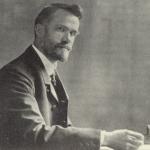When Neuhaus died almost a decade ago, the former Lutheran pastor turned Roman Catholic and founder of First Things, his brand of Roman Catholicism seemed secure. His understanding of the relations between Roman Catholicism and the United States, for instance, drew heavily on the arguments that John Courtney Murray had made in the 1950s and at the Second Vatican Council. Murray was a great proponent of religious liberty and natural rights and argued that the Founders had drawn, either explicitly or implicitly, on older, even medieval, natural law ideas about freedom. This in turn allowed Murray and Neuhaus to propose a basic compatibility between U.S. politics and Roman Catholicism, an idea that before Vatican II was much contested both in the American church and at the Vatican.
Another feature of Neuhaus’ faith that drew inspiration if not actual doctrine from Vatican II was his effort to form an alliance with evangelical Protestants. In 1994, with Chuck Colson, Neuhaus founded Evangelicals and Catholics Together. It was (and still is) a largely ad hoc gathering of prominent Protestant and Roman Catholic intellectuals and officials and strives to find common ground both in matters of faith and in the wider society.
These efforts to find compatibility — between the United States and Rome, and between Roman Catholics and Protestants — should not be read to suggest that Neuhaus was the Rodney King (“can’t we all just get along?) of religious and political life during the Reagan, Clinton, and Bush years. Neuhaus started his professional life in the ranks of Civil Rights activists and Vietnam War protesters. He was not afraid of and likely enjoyed a fight. So he did not simply celebrate but criticized aspects of American government. He was also willing to identify the errors of Protestantism since he left that fold to become a Roman Catholic. Neuhaus was no Mr. Rogers.
And yet, signs are emerging almost daily that Roman Catholics on the right have grown tired and are close to rejecting many of Neuhaus’ accomplishments. What is even more amazing is that First Things, the magazine that became the chief vehicle for Neuhaus’ arguments, is facilitating the dissent.
For instance, Matthew Walther, who writes now for The Week but has ties to First Things, recently wondered whether the idea of evangelicals and Roman Catholics cooperating was such a hot one:
in exchange for the cooperation of evangelicals, conservative American Catholics have abandoned one of the great jewels in the crown of the Church, her modern social magisterium, the tradition that runs from Pope Pius IX’s denunciation of Victorian-era classical liberalism to Pope Francis’ Heideggerian assault on the merciless logic of globalized technocratic capitalism. For evangelicals, the idea that there is a common good toward which the political order must be oriented — and that this mutual flourishing cannot be conceived of as the mere aggregate of millions of individuals pursuing their own material interests with limited interference from the state — has no basis in theology. In return for evangelicals’ acknowledgement of one evil, Catholics have learned to ignore what the Church has to tell them about how we are to live in the world with one another.
Neuhaus was not pope, but it’s also easy to imagine that he would take exception to Walther’s way of framing the matter.
Yet, even in the pages of First Things, its editor, Rusty Reno, has written that Neuhaus’ arguments about religion and public life have hit their expiration date:
We are doing some rethinking at First Things. Some of us wonder if John Courtney Murray was too sanguine about the congeniality of the American project to Catholicism. This is not idle speculation. Progressive culture warriors are clear about their intention to give sexual freedom priority over religious freedom. Maas is entitled to the view that these threats to religious liberty betray all that is right and good in the American founding. That’s my position. But I’m less confident now than I was a decade ago, which is why I’m interested to hear what people like Michael Hanby, Patrick Deneen, and Adrian Vermeule have to say.
That response to one of my colleagues at Hillsdale College did not mention Neuhaus. But it did not need to since Neuhaus was a great proponent and defender of Murray’s harmonization of Roman Catholicism and the American political tradition.
All of which leaves me scratching my head about what’s in the water these days of conservative Roman Catholics living in the United States.












